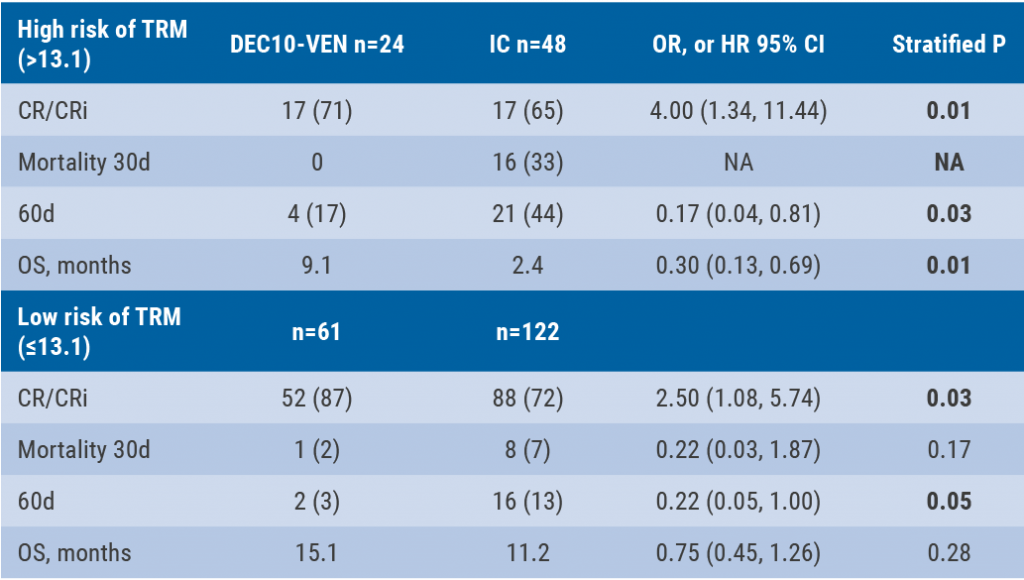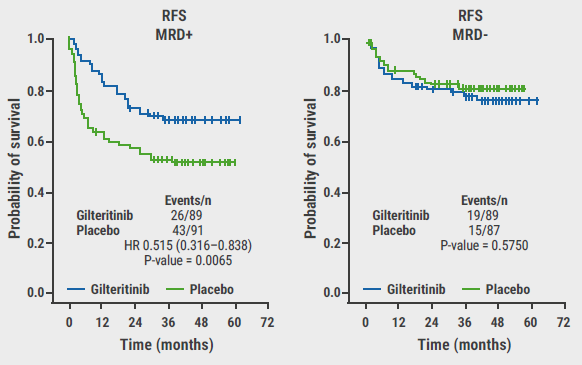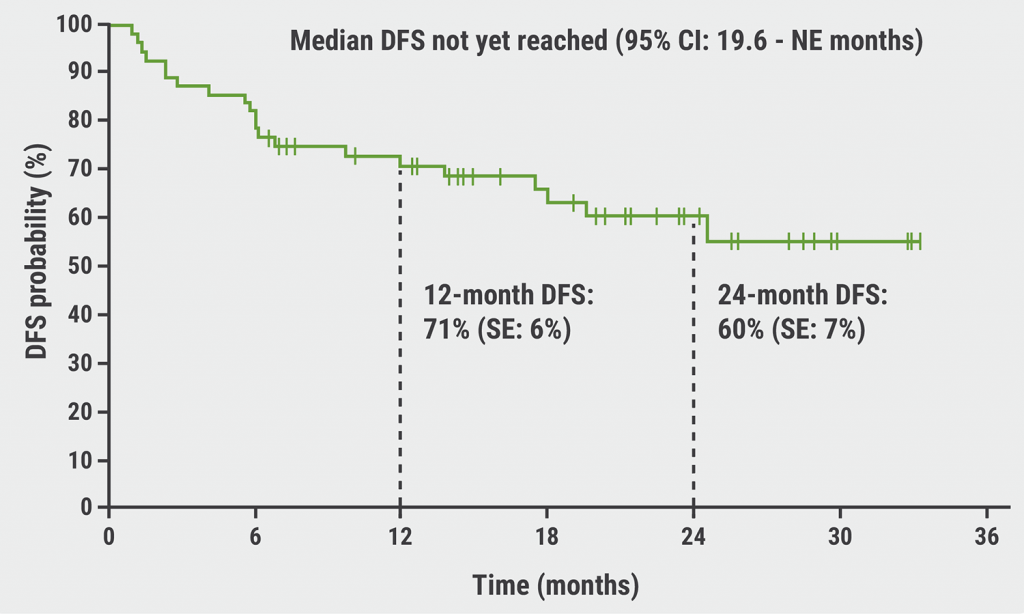Acalabrutinib is a next-generation BTK inhibitor approved for the treatment of CLL and small lymphocytic lymphoma with a shorter plasma half-life and greater selectivity for BTK compared with ibrutinib, which might improve tolerability.
The ELEVATE-RR open-label, non-inferiority trial tested the two drugs in 533 patients with previously treated CLL with confirmed del(17p) and/or del(11q); 268 were randomly allocated to oral acalabrutinib 100 mg twice daily and 265 to ibrutinib 420 mg once daily until disease progression or unacceptable toxicity.
At a median follow-up of 40.9 months, treatment with acalabrutinib was noninferior to treatment with ibrutinib on the primary endpoint of PFS (median, 38.4 months in both groups).
Acalabrutinib was also associated with a statistically significantly lower incidence of atrial fibrillation compared with ibrutinib (9.4% vs. 16.0%; P=0.02).
There were no differences between acalabrutinib and ibrutinib in grade-3-or-higher infections (30.8% vs. 30.0%) and Richter transformations (3.8% vs. 4.9%). Treatment discontinuations due to adverse events occurred in 14.7% of acalabrutinib-treated patients versus 21.3% of ibrutinib-treated patients.
At data cutoff, median overall survival was not reached in either group, with 63 (23.5%) deaths in the acalabrutinib group and 73 (27.5%) in the ibrutinib group.
The results were presented virtually in June at the American Society of Clinical Oncology annual meeting and now appear in the Journal of Clinical Oncology.
In a news release from AstraZeneca, which makes acalabrutinib, lead investigator Dr. John C. Byrd of The Ohio State University, in Columbus, noted that cardiac adverse events are "an important consideration" for treating CLL patients with BTK inhibitors "because they can produce significant morbidity in some cases and also lead patients to discontinue treatment."
Data from the ELEVATE-RR trial "provide compelling evidence that acalabrutinib is a more tolerable option with reduced cardiovascular toxicity and overall fewer discontinuations due to adverse events, giving clinicians further reassurance when prescribing this medicine that patients can stay on treatment while maintaining ongoing control of their disease," Dr. Byrd said.
The author of an editorial says the results of the ELEVATE-RR study - as well as the ALPINE study pitting another next-generation BTK inhibitor, zanubrutinib, against ibrutinib in previously treated CLL - indicate that both of these more-selective BTK inhibitors "demonstrate a favorable toxicity profile and at least equivalence in terms of efficacy when compared with ibrutinib in patients with relapsed and refractory CLL."
The findings "can likely be extrapolated to other subgroups of patients with CLL," writes Dr. Deborah M. Stephens, of the University of Utah Huntsman Cancer Institute, in Salt Lake City.
"These results beg the question, in which patients would you still select ibrutinib, acalabrutinib, or zanubrutinib? Patients who would clearly benefit from ibrutinib over acalabrutinib or zanubrutinib are those who can be more compliant with a once-daily dosing (ibrutinib) than twice-daily dosing (acalabrutinib and zanubrutinib) and those who have severe gastroesophageal reflux requiring proton-pump inhibitor therapy (interferes with absorption of acalabrutinib)," Dr. Stephens says.
"The list of efficacious and tolerable medications for the treatment of CLL continues to grow. Which agent is simply the best therapy for patients with CLL? Time and further studies hope to better answer this question," she concludes.
The study did not have commercial support, but several authors report financial ties to AstraZeneca, which sells acalabrutinib under the brand name Calquence.
SOURCE: https://bit.ly/3sfIbQl https://bit.ly/3yNFBnd Journal of Clinical Oncology, online July 26, 2021.
By Reuters Staff
Posted on
Previous Article
« Brain implant enables patient with anarthria to ‘speak’ through computer screen Next Article
mRNA COVID-19 vaccines appear preferable for patients with IBD »
« Brain implant enables patient with anarthria to ‘speak’ through computer screen Next Article
mRNA COVID-19 vaccines appear preferable for patients with IBD »
Related Articles

September 9, 2020
DEC10-VEN superior to intensive chemotherapy in high-risk AML


February 4, 2022
Encouraging results of novel triplet combination for AML
© 2024 Medicom Medical Publishers. All rights reserved. Terms and Conditions | Privacy Policy
HEAD OFFICE
Laarderhoogtweg 25
1101 EB Amsterdam
The Netherlands
T: +31 85 4012 560
E: publishers@medicom-publishers.com

